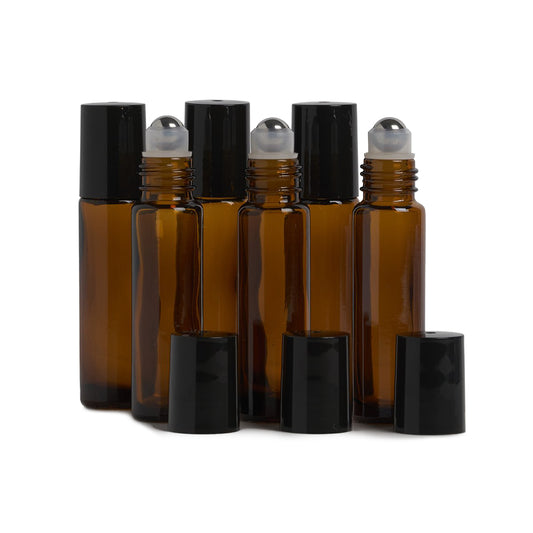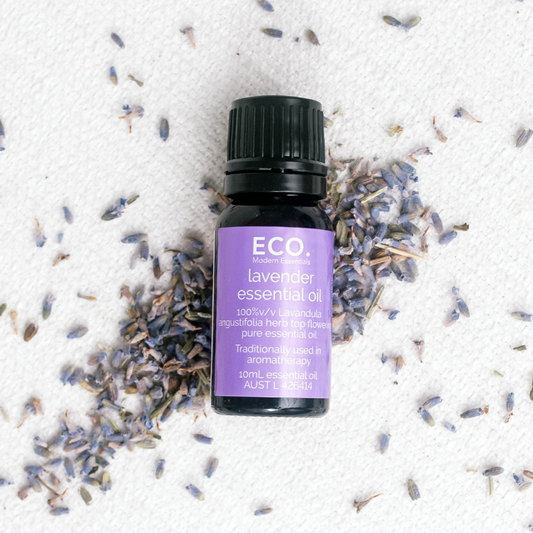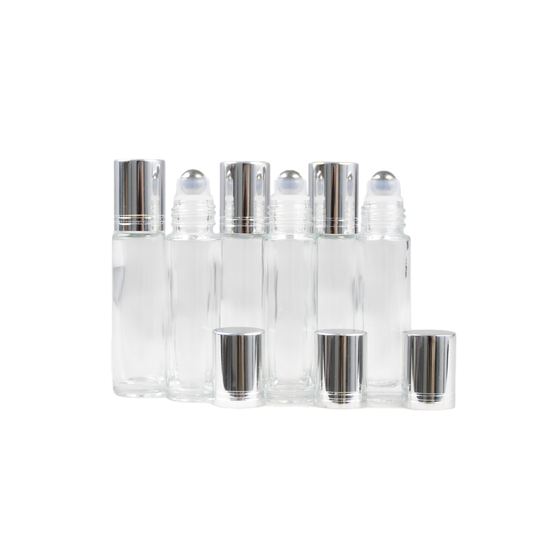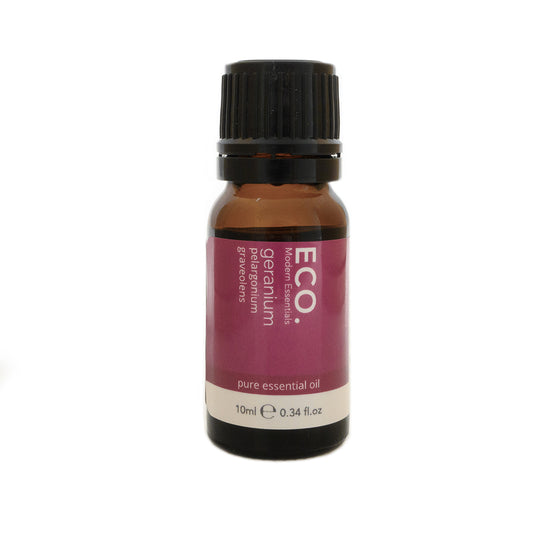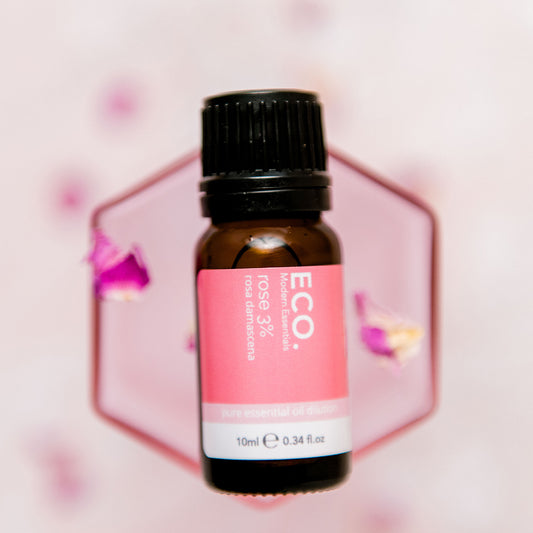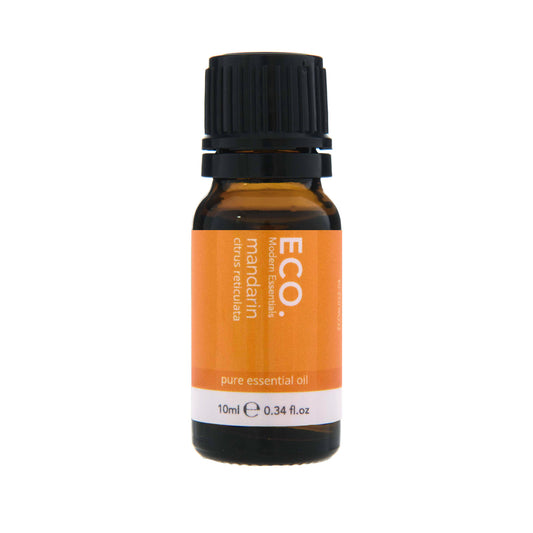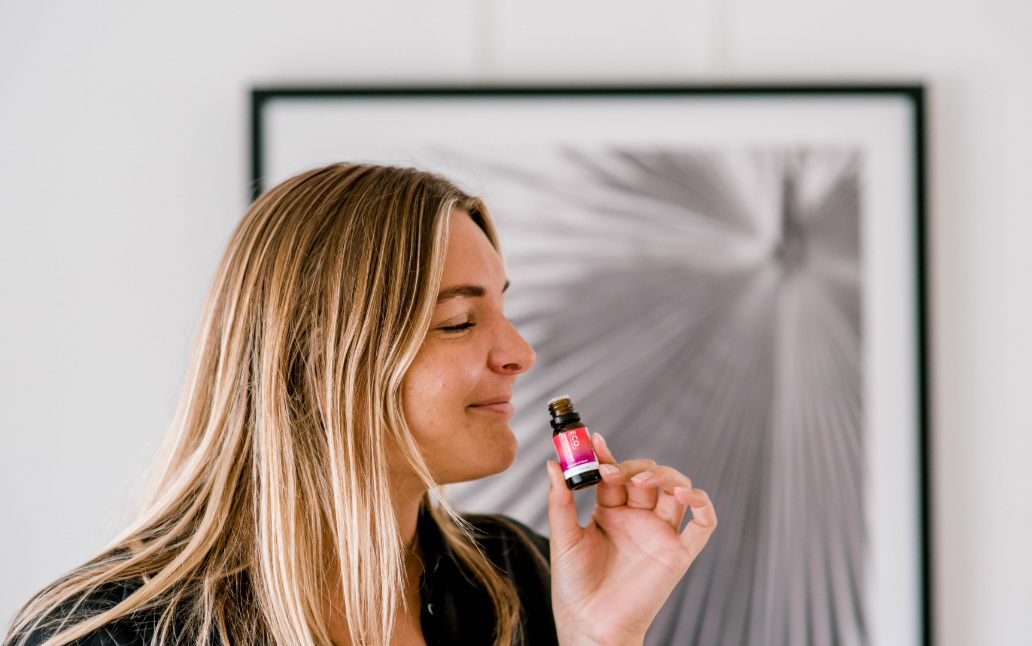
Aromatherapist’s Guide: How Essential Oils Influence the Nervous System
After thousands of years of using aromatherapy, practitioners know what essential oils can be used for through experience. What has been harder to understand is just exactly how essential oils work. In the last 20 years researchers have begun unravelling these questions.
Have you heard about ‘fight or flight’ and ‘rest and digest’? These terms describe what happens in your body when you are stressed or relaxed. Some stress is vital, but too much can place a lot of wear and tear on the mind and body. Long term stress can cause health problems or make existing health concerns worse. Stress management, along with sleep, healthy eating and exercise are the foundations of good health. Essential oils support our general health and wellbeing by helping us manage stress and sleep.
Essential oils and the Nervous System
Scent can affect our emotions and body functions by interacting with the nervous system and our cells. This blog focuses on essential oils interacting with our nervous system.
When we Inhale an Essential Oil it:
- Stimulates the olfactory nerves in the nose.
- The olfactory nerves send signals to an area in the brain called the limbic system.
- The limbic system has structures that are associated with emotions, memory and learning which is why sent can produce emotions and memories.
- The limbic system is also connected to other structures in the brain such as the hypothalamus.
- The hypothalamus regulates behaviour and body functions, including activating the fight or flight and rest and digest divisions of our nervous system.

Calm the Chaos: Essential oils and the Parasympathetic Nervous System
We can feel stressed for many reasons, such as a physical threat or worrying about a situation. When there is a threat, the sympathetic nervous system, fight or flight, is activated.
- The amygdala, in the limbic system, alerts the hypothalamus.
- The hypothalamus sends a message to the adrenal glands
- The adrenal glands releases adrenalin
- Adrenalin causes the body to go into fight-or-flight mode.
This happens so fast that we can jump out of the way of oncoming danger without even thinking about it. Ideally, once the danger has passed we calm down, but sometimes it is difficult to put on the brakes and we stay in a stressed-out state. Feeling fatigued? We can harness the actions of the sympathetic nervous system with essential oils such as Peppermint, Rosemary, Lemon and Cinnamon. These essential oils were found to increase alertness and arousal.
The opposite of the sympathetic nervous system is the parasympathetic nervous system (PNS). When this system is activated our bodies go into healing and repair mode. There are certain nerves that connect between the brain and sacral area, including the vagus nerve, that set off the parasympathetic response.
How to Activate the PNS
- Deep breathing
- Meditation
- Getting a massage
- Being in nature
- Humming/ singing
- Using relaxing essential oils
Research has found that:
- Lavender and Geranium increase the PNS by reducing heart rate and blood pressure
- After exposure to Grapefruit cortisol levels reduce. Cortisol is a stress hormone.
- Simply smelling freshly cut roses strengthens the PNS response and increases feeling comfortable
- Essential oils can improve your wellbeing after 15 minutes of inhalation
Enjoy the benefits of essential oils by putting them in a diffuser, directly inhaling from the bottle, in a massage blend or use in the bath or shower. Choose calming essential oils to activate the parasympathetic nervous system so you can beat stress and encourage your body to heal and repair.
Putting it all together: DIY Nervous System Toolkit
Beautiful self-care rituals are wonderful for the nervous system but can seem overwhelming if we are stressed or short on time. This toolkit is designed for difficult days when we want easy solutions and quick pick me ups.
You can create your own essential oil blends using the reference lists below or try my favourite brews. Carry your rollerball bottles with you or keep them by the bedside. For children, remember to keep the essential oil dilution low; 5 to 10 drops of essential oil / 10mls carrier oil.
- Simply grab some rollerball bottles
- Fill with your favourite carrier oil
- Add up to 20 drops of essential oils (for adults)
- Apply a small amount to pulse points, wrists, between collar bones, heart space.
- Breathe deeply and allow the essential oils to work their magic
- Reapply 2 or 3 times a day

Sleep
Sleep is vital for all levels of wellbeing. It is very healing and gives us time to decompress from tough days, anxiety and stress.
Fun Fact: To get a deep healing sleep try diffusing Lavender before bed or even during sleep. Lavender increases delta brain waves which are associated with deep sleep and reduces alpha brain waves which indicate alertness.
Essential Oils for Insomnia – Chamomile, Lavender, Mandarin, Coriander, Sandalwood, Frankincense, Rose, Petitgrain, Bergamot, Clary Sage, Patchouli.
Dream Cloud Blend
- 2 drops Lavender
- 2 drops Clary Sage*
- 3 drops Mandarin
- 3 drops Sandalwood
*Clary Sage may not be suitable for kids.
Anxiety
Anxiety can be a natural reaction that prepares, energises and motivates us into action. When we can’t calm down or often feel anxious it can really start to get in the way of enjoying life. Essential oils can help if you have difficulty relaxing. Other signs of anxiety can be a racing heart, muscle pains and cramps, avoidance, feeling sick or nauseous, indigestion, headache, difficulty concentrating, poor memory and sleeplessness.
Essential Oils for Anxiety – Geranium, Rose, Ylang Ylang, Frankincense, Lavender, Bergamot, Grapefruit , Copaiba, Cedarwood, Sweet Marjoram, Sweet Orange, Petitgrain, Jasmine, Vetiver
Warrior Blend
- 2 drops Vetiver*
- 2 drops Geranium
- 3 drops Copaiba
- 3 drops Petitgrain
*Vetiver may be too sedating for children, swap with Frankincense or Lavender.
Sadness
Much like anxiety, sadness can be an understandable response to certain life events. Sadness can indicate that we need to take time to reflect and to take extra care of ourselves. Long term stress can impact on our mood which makes us feel down too. Managing stress supports our health in body and mind. Essential oils have long been used to lift spirits.
Essential Oils for Low Mood – Basil, Sweet Orange, Lemon, May Chang, Peppermint, Rosemary, Rose, Geranium, Frankincense, Ginger, Neroli, Tea Tree
Lifting Light Blend (for adults)
Lifting Light Blend (for kids)
Anger/Frustration
Anger can be a sign that our boundaries have been crossed driving us to defend ourselves and others. The effects of stress can also be a having a ‘short fuse’, having less patience and feeling frustrated. In excess, anger can make it hard to communicate with others and have physical health effects like indigestion or other digestive complaints, headaches, high blood pressure, and heart issues.
Essential Oils for Anger – Chamomile, Lavender, Peppermint, Spearmint, Bergamot, Grapefruit, Sweet Orange, Rose
Grumpy Bears Blend (for adults)
Grumpy Bears Blend (for kids)
For thousands of years humans have relied on plants and aromatic preparations for health and healing. There is a magic quality to fragrance which we can harness to help influence the nervous system, which in turn promotes healthy body functioning through stress management and good quality sleep.


